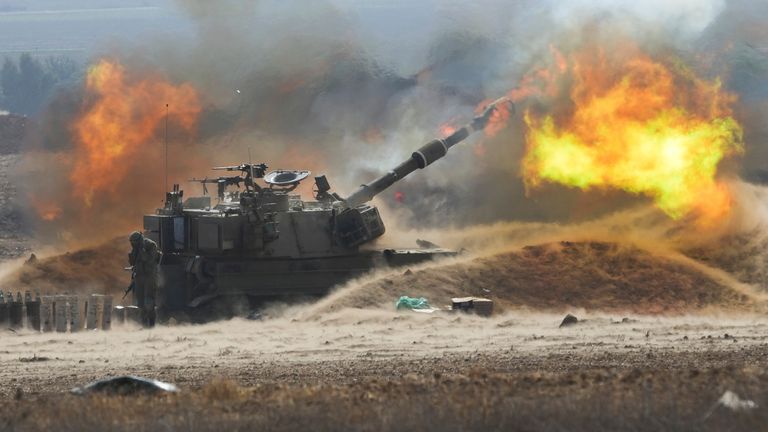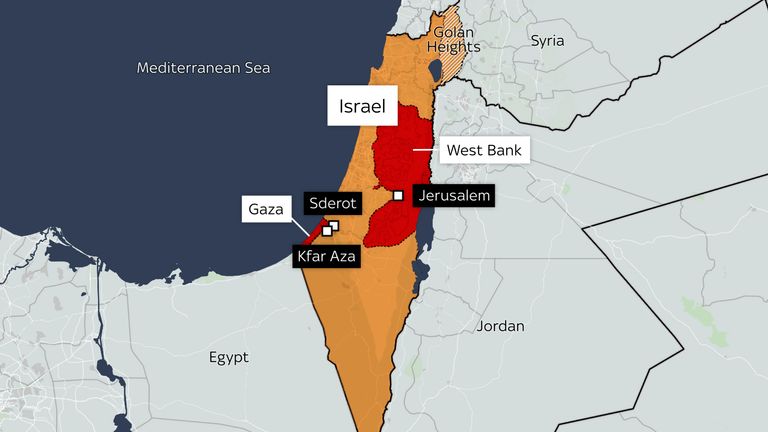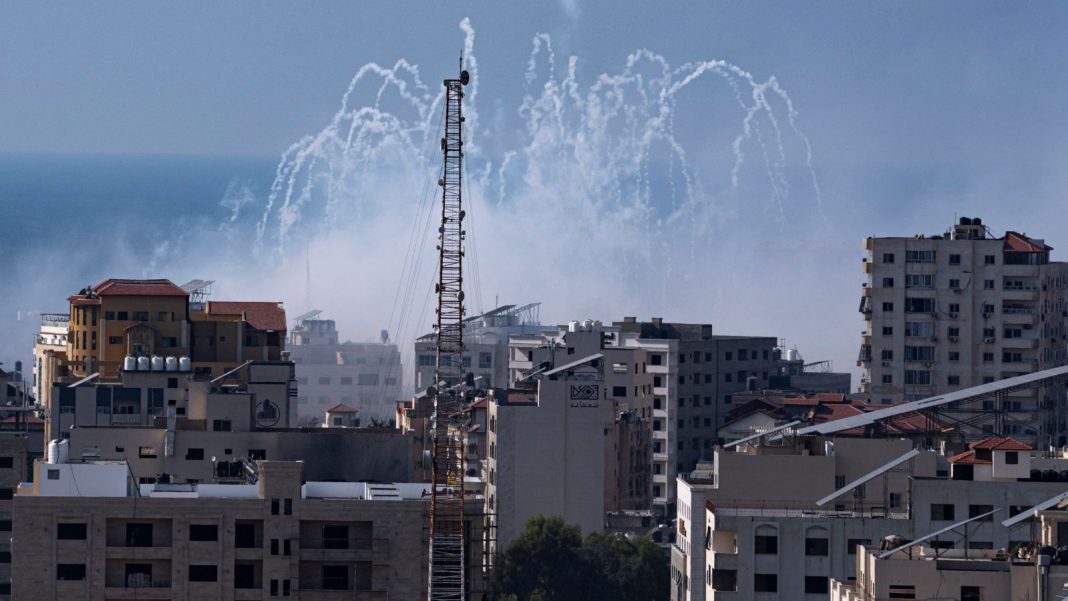Besieged Gaza has run out of electricity as Israel continues its bombardment in response to a brutal Hamas attack over the weekend.
Israeli warplanes bombed the Gaza Strip overnight and into Wednesday, reducing buildings to rubble and reportedly striking over 450 targets in a conflict that has claimed at least 2,100 lives in total.
Hamas’s armed wing, meanwhile, says it is carrying out “major strikes” in the southern Israeli city of Ashkelon, claiming it is “in response to the continued displacement of civilians”.
A hospital there has said a rocket hit their building, while the Israel Defence Forces (IDF) said sirens had sounded in the city without offering further detail.
With Israel continuing its “total siege” to stop the entry of food, fuel and medicines into Gaza, the city of 2.3 million people has been left without electricity after its sole power station ran out of energy.
Latest as Gaza runs out of power and Israel strikes Lebanon
Please use Chrome browser for a more accessible video player
0:48
Drone footage shows Gaza’s refugee camp destroyed by Israeli airstrikes.
Jalal Ismail, from Gaza’s energy authority, had said power would run out in the city by midday on Wednesday.
“The power plant will stop working completely today at 2pm (12pm UK time), due to the exhaustion of the amount of fuel needed to operate it,” he said.
At least 1,200 Israelis are dead and more than 2,700 have been wounded, according to figures from the IDF.
The latest information from Gaza’s Health Ministry said that at least 1,055 Palestinians have been killed and 5,184 wounded in Israeli strikes, with authorities claiming two-thirds of those injured are women and children.
Sky News understands 17 British nationals are among those killed or missing – including children.
Please use Chrome browser for a more accessible video player

3:47
Noa Hubara describes the moment that she found out her husband had been killed by Hamas.
To outline the UK’s support for Israel, Foreign Secretary James Cleverly arrived in the country on Wednesday afternoon, with plans to also meet survivors.
King Charles has also asked to be kept actively updated, Sky News understands, and he also offered his thoughts and prayers to those affected, particularly those who have lost loved ones.
In a bid to minimise the number of people impacted, Israel said it is shifting all schools to remote learning from Sunday and stepping up issuing firearms to licensed citizens.
In another sign of the crisis widening, the conflict also spread further afield once again – with the Hezbollah militant group claiming responsibility for a rocket strike on Israeli territory launched from Lebanon in the morning.
The group said it fired precision missiles in response to Israeli attacks that left three of its fighters dead earlier in the week.

Pic: AP

Hitting back, the IDF confirmed it was striking Lebanese territory in response to what it thought was an “anti-tank weapon” across the border and said it had hit a Hezbollah lookout position.
To bolster its armoury, Israel received a delivery of “advanced weaponry” from the US, described as an “initial shipment” by the ministry of defence.
The US has also sent a team of technical experts to Israel to assist in hostage recovery, with Hamas keeping dozens of Israelis captive.
Read more:
Would Israel attack Iran – and what would the risks be in the Middle East?
US sends technical experts to assist in hostage recovery in Gaza
President Joe Biden said his administration would “surge” supplies into Israel, but did not provide any specifics on what was being sent.
While Israel has vowed to “wipe out” Hamas and further signs on Wednesday suggest a ground offensive is in the works, the US reportedly wants to create a humanitarian corridor for Gaza.
With residents in Gaza trapped between Israel, a closed Egyptian border and the sea, NBC News reports the Biden administration is coordinating with other countries on a plan offering civilians escape.







